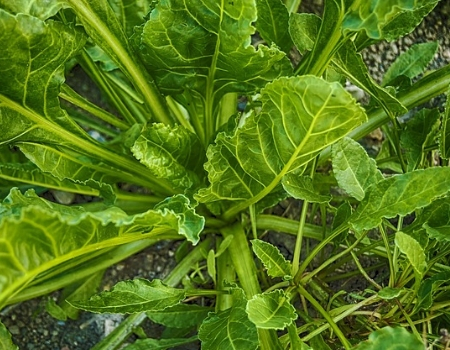 This technique can be used for rapid screening of candidate genes for chloroplast expression in a wide variety of crop plants.
This technique can be used for rapid screening of candidate genes for chloroplast expression in a wide variety of crop plants.
Scientists have found new ways of using tiny particles of carbon to speed up the process of genetically modifying plants. The researchers from the US-based Massachusetts Institute of Technology (MIT) used nanoparticles to deliver genes into the chloroplasts of plant cells and worked with many different plant species including spinach and other vegetables.
The researchers grafted genes on to carbon nanotubes, microscopic cylindrical structures, and then showed that they easily inserted themselves into the nucleus of plant cells, where the plant then decoded the DNA instructions.
For the study, published in the recent journal of Nature Nanotechnology, the team of researchers injected carbon particles coated in a gene for fluorescence into the leaves of supermarket spinach. They also showed that the nanotubes could slip through the cell walls of a variety of other plants.
This means that they could not only be used to deliver individual genes, but also carry the instructions to fundamentally edit the DNA of the plant itself.
According to the MIT (@MIT) researchers, this is an easier way to engineer plants. The traditional process is usually complex and time-consuming. It is also a process that has to be customised to the specific plant species that is being altered, according to the MIT researchers.
This is a universal mechanism that works across plant species, said Michael Strano, the Carbon P. Dubbs Professor of Chemical Engineering at MIT, speaking about the new process.
This is an important first step toward chloroplast transformation, Chua said. This technique can be used for rapid screening of candidate genes for chloroplast expression in a wide variety of crop plants.
The researchers hope that this new tool will allow plant biologists to more easily engineer a variety of desirable traits into vegetables and crops. For example, agricultural researchers in Singapore and elsewhere are interested in creating leafy vegetables and crops that can grow at higher densities, for urban farming.
Other possibilities include creating drought-resistant crops, engineering crops such as bananas, citrus, and coffee to be resistant to fungal infections that threaten to wipe them out, and modifying rice so that it does not take up arsenic from groundwater.
According to the US-based scientists, because the engineered genes are carried only in the chloroplasts, which are inherited maternally, they can be passed to offspring but cant be transferred to other plant species.
Thats a big advantage, because if the pollen has a genetic modification, it can spread to weeds and you can make weeds that are resistant to herbicides and pesticides. Because the chloroplast is passed on maternally, its not passed through the pollen and theres a higher level of gene containment, MIT graduate student Tedrick Thomas Salim Lew said.
Read:The chemical innovation taking anti-cancer compounds out of the sea slug and into the lab.
Read:Synthetic microorganisms could allow scientists to solve ancient evolutionary mysteries.
Read:Expert View: How synthetic biology offers solutions for Mars colonization.
Read:Expert View: How China is catching up with the US in new applications of synthetic biology.
Read:Synthetic biology breakthrough could ignite cheaper biofuel production.
Read:Expert View: The importance of metrology in realizing our synthetic biology potential.
Visit:World Bio Markets, 1st-3rd April 2019, Amsterdam.
NEW!And available to download: Issue #12 of the Bio-Based World Quarterly.






